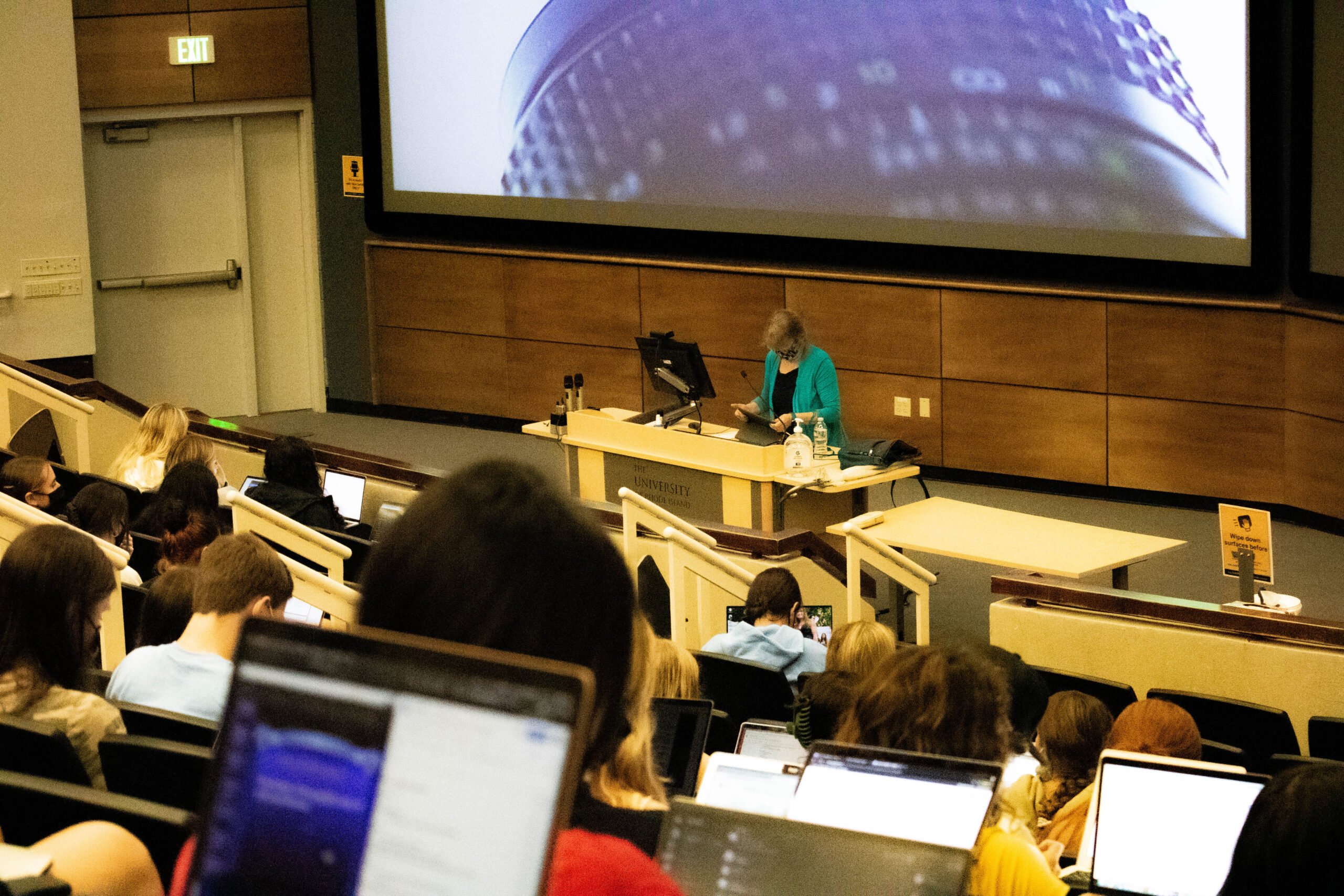Ellen Reynolds, vice president of student health and wellness and director of health services, urges students to continue to adhere to COVID-19 mandates to keep the community safe. PHOTO CREDIT: Melissa Marchese | Staff Photographer
Unlike other universities in Rhode Island that started online for the first few weeks of the spring semester due to a spike in COVID-19 cases, the University of Rhode Island decided to start the spring semester in person.
Rebecca Brown, a professor of plant sciences and entomology at URI, said she isn’t concerned about the impacts of the omicron variant within the university community. She said that she is confident that with the University’s vaccination requirement, there will be no reason to go back to virtual learning.
Brown said that learning online during the spring 2020 semester was especially difficult for her and her students because her classes are built to be interactive.
“It was a huge impact because most of my classes are very hands-on,” she said. “Students spend their time actually growing plants and working with plants.”
Students’ plants from the greenhouse were sent home so they could attempt to complete the course how it was intended, but it paled in comparison to what they could have done in person together, according to Brown.
“I think it’s important that we have in-person classes,” she said. “I think there’s been a big shift to online, and well, that can be helpful in some cases but I think we need to be careful to remember that not all students do well with online courses.”
Ellen Reynolds, vice president of student health and wellness and director of health services, and Dave Lavallee, assistant director of external communications and public information officer for COVID-19, both agreed that omicron shouldn’t be a concern as long as people follow URI mandates.
“When the news media machine started talking about omicron, I think there was a feeling, at least for me, that was like, ‘oh boy, here we go again,’” Lavallee said. “But the good thing is, you know, we already had our systems in place.”
Reynolds said that the University has had two years of experience dealing with COVID-19 and that masking, limiting exposure, COVID-19 testing and required vaccinations have aided the URI community in staying safe and being able to meet in person. According to her, being in classrooms at full capacity is safe, even with the omicron variant.
“I can never say with 100 percent certainty, but we are unaware of transmission from classroom experiences,” Reynolds said. “We’re aware of classmates both testing positive, but most of the time it’s due to social engagements, riding in cars together, being with friends and being with sorority or fraternity counterparts.”
There has been some backlash from faculty and students about all of the mandates at the university, according to Reynolds, but right now these rules are a requirement for URI.
“The mandate is here to help keep this community safe and healthy and together,” she said. “Without [the mandate], it would be likely that we would not be able to be together.”
Both Reynolds and Lavallee recommend for students and staff to continue wearing masks, limiting large gatherings, keeping good respiratory and hand hygiene, testing if you exhibit symptoms and maintaining good mental health. According to them, these practices have already been making a difference at the university.
“If you follow both the URI tracker or the state of Rhode Island tracker, you’ll know that we were really high in January and December, and February is looking much better,” Reynolds said. “Every day, there’s an improvement, there’s a decrease in the number of cases.”
There are free and accessible vaccine clinics every week in the Memorial Union Ballroom on campus and the next clinics will be on Thursday, Feb. 17 and Tuesday, Feb. 22 from 9:00 a.m. to 12:00 p.m.

